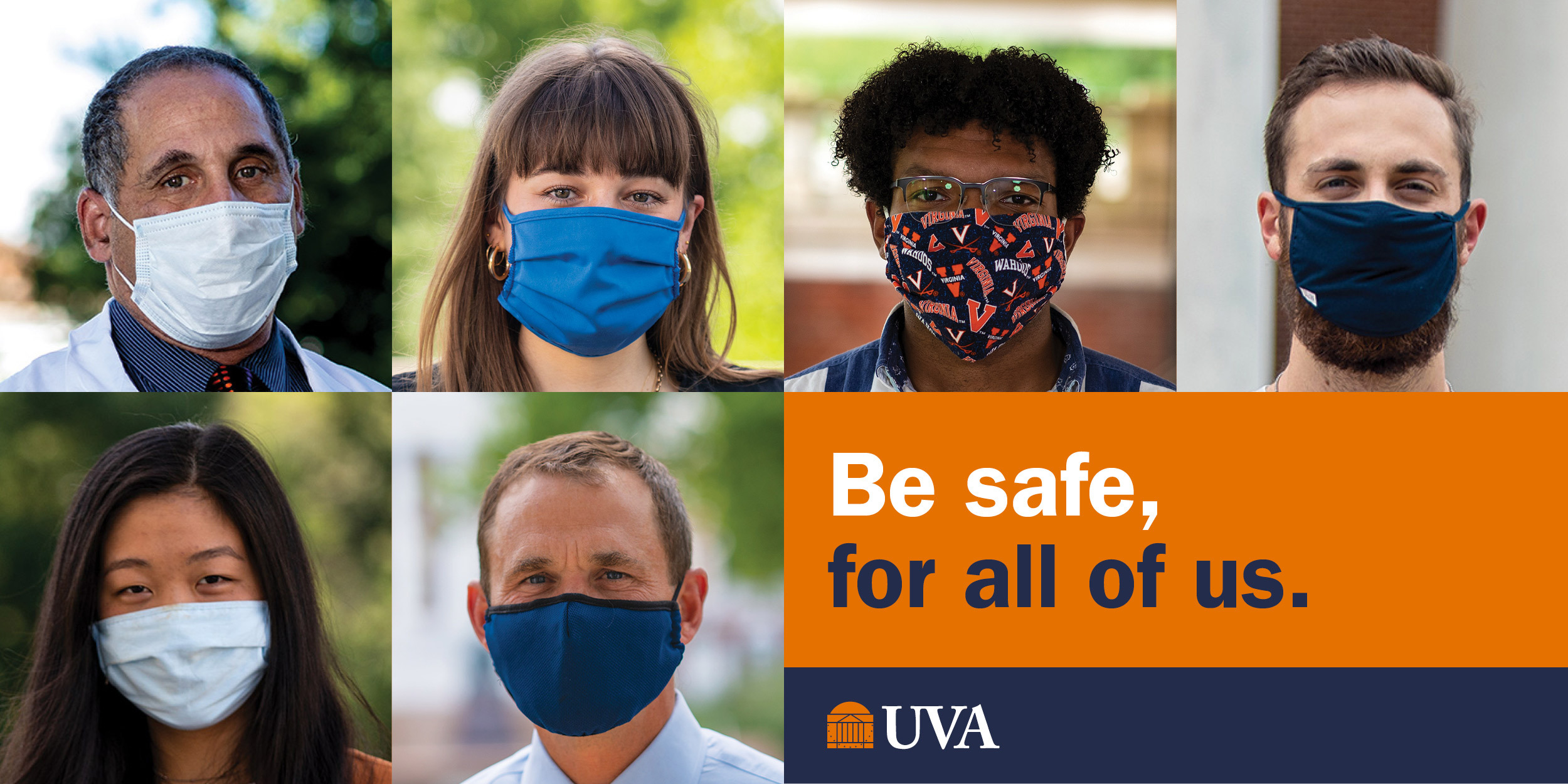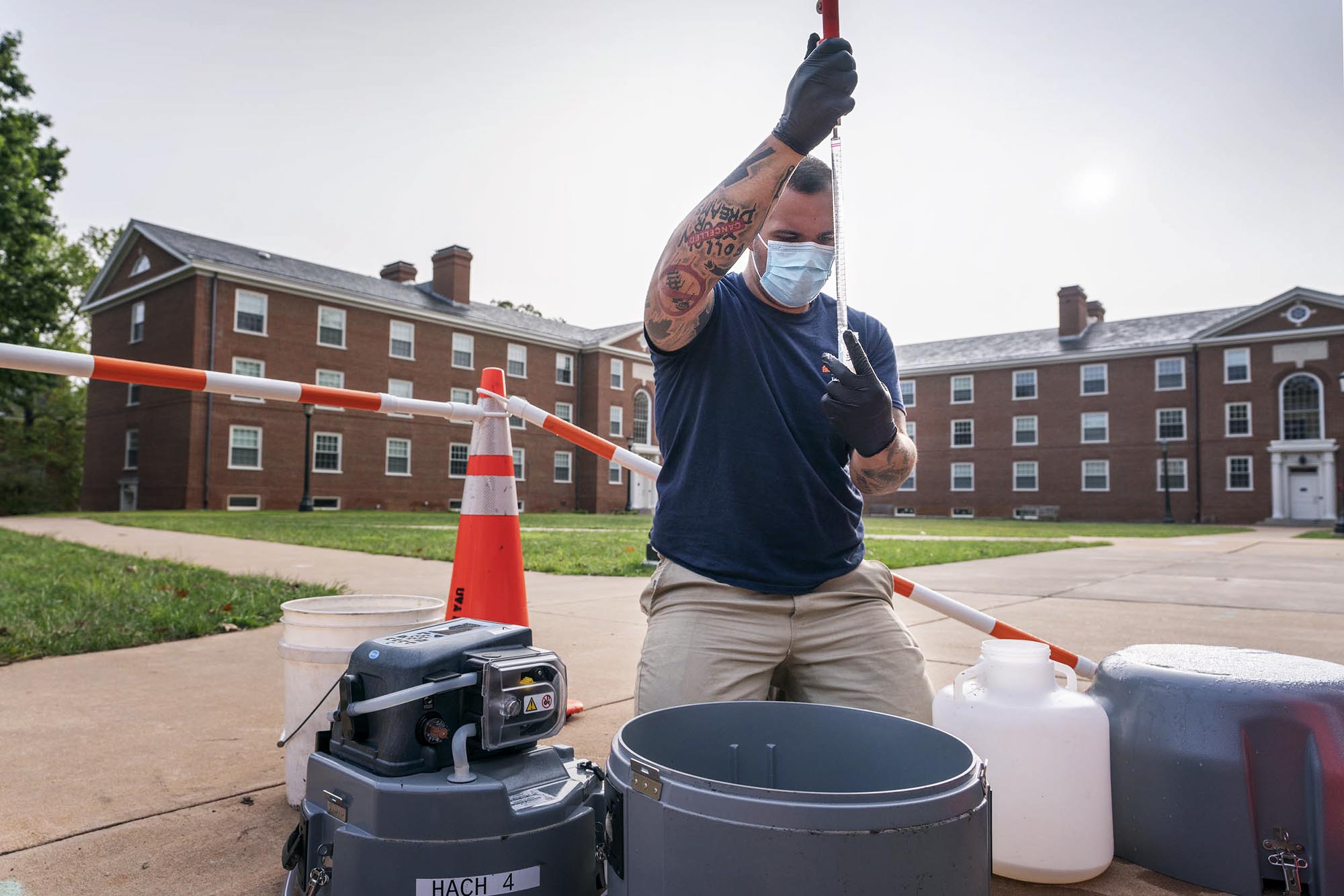With the fall semester getting into a rhythm and residence halls once again housing students, the University of Virginia has implemented new methods to detect the presence of the novel coronavirus.
Three approaches announced recently include PCR-based random student testing using nasal swabs, a method that will allow large groups to be tested using saliva samples, and a program that analyzes dormitory wastewater for evidence of COVID-19. These programs are in addition to continued testing of all students, faculty and staff who have symptoms consistent with possible COVID-19.
UVA Today caught up with Dr. Amy Mathers, associate professor of medicine and pathology, to find answers to a few questions about UVA’s wastewater testing program, which is a joint effort of the University and the UVA Medical Center.

Q. Wastewater can confirm the presence of COVID? How?
A. Yes. People who have COVID-19 can “shed” the virus in their fecal matter, whether they are showing symptoms of the disease or not. This program uses technology that allows UVA to gather samples from wastewater in a residence hall and run a test that will indicate if SARS-CoV-2, the virus that causes COVID-19, is present in the wastewater.
Students don’t have to provide any samples themselves, or take any other action to enable this initial screen of a building’s wastewater.
Q. How does this help?
A. UVA is conducting both symptomatic and asymptomatic testing. Symptomatic tests are for people who are feeling ill and experiencing the kinds of symptoms we associate with someone who has COVID-19.
Asymptomatic testing lets us identify people who have COVID-19 who are otherwise feeling fine and don’t know they have it. They have the potential to spread the virus because neither they nor the people they come in contact with have any obvious warning signs of the presence of COVID-19. So the wastewater analysis program give us another tool to find out sooner, and to take steps to minimize the chance of spread.
The critical aspect of this program is the ability to detect infections at the earliest stage and then to intervene with testing, isolation and quarantine to limit spread.
Q. What happens if the wastewater analysis indicates the presence of COVID?
A. If the test suggests there is virus in the wastewater, the University in partnership with the Virginia Department of Health will quickly move to the next phase of the program. This stage will include a review of whether cases have been detected in this dorm and a determination will be made that may lead to testing of all students living in the dorm.
As COVID-19 can be quite contagious when people live together, we are taking these extra precautions to prevent spread. The actual response for any given dormitory will depend on many factors and be made by a team that includes epidemiologists, health professionals, representatives from Student Affairs and others.
I would like to emphasize that no residence hall occupant will get in any trouble for any part of this program.
But we sincerely hope everyone in our residence halls – and in the University and community – recognizes that this is part of our efforts to make everyone as safe as possible. We would much rather find out about the presence of the virus through this kind of advance-warning system, and act fast to minimize it, than to have to respond after it has begun to spread in a residence hall community.
Media Contact
Article Information
September 19, 2020
/content/qa-how-uvas-residence-hall-wastewater-virus-testing-works

